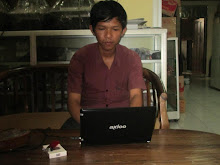Nelofer Pazira (her first name means "water lily," her surname "to accept") grew up in the middle-class Sharenow neighborhood of Kabul, where her father was a doctor and her mother taught Persian literature, and where her friend, Dyana also lived.
Pazira and Dyana
In 1989, Nelofer's family decided to flee Afghanistan's communist regime under President Najibullah. Sixteen year old Nelofer walked for ten days together with her family into Pakistan, and eventually ended up in Moncton, New Brunswick. For the next nine years apart, Dyana and Nelofer kept in touch through letters. While Pazira got a degree in English and journalism, and then embarked on a masters, Dyana trained as an economist and worked in a bank until she, along with all other Afghan women, was forbidden to work when the Taliban came to power.
In April 1998, Nelofer received a letter from Dyana telling her that she should live for the both of them and that her own life in Afghanistan, under Taliban rule, was no longer worth living. Worried that Dyana intended to kill herself, Pazira traveled from Canada to the Afghan border determined to stop her.
Looking for Inroads
As she looked for ways to get into Afghanistan, Nelofer remembered a family she'd met while serving in a Afghan refugee camp in Iran. Although the family was willing to help her, some of their relatives were being tortured by the Taliban at that moment and they were afraid.
Forced to look for help elsewhere, she thought of Mohsen Makhmalbaf. She was impressed by the sympathy for Afghan refugees displayed in his 1987 film, "The Cyclist", and went to see him in Iran. Unfortunately, that was filmed in Pakistan and Iran and he knew almost nothing about Afghanistan. 'I was terribly disappointed, but I told him I was determined to go into Afghanistan to find my friend before she committed suicide and said he should come with me and make a documentary.'
It never happened. Nelofer couldn't get into Afghanistan and was forced to return to Canada without finding her friend.
Makhmalbaf's Call
Two years later, she received a call from Makhmalbaf. He was going to the Afghan border to make a fictionalized version of the story she had told him, and he wanted her to come to Iran to play herself.
Although Kandahar is directed by Makhmalbaf, it is very much Nelofer's film. She acted as interpreter and negotiator with the Afghan refugees in the border village where the film was made and as script-adviser on the fictional treatment of her own story. Without her presence off-screen, as well as on, the film would not have been made.
A New Role
A year ago, she discovered that Dyana was still alive, but since then there has been silence. Nelofer would like to get back to her master's thesis. But for now she feels she has an important role to play, explaining Afghanistan and making sure people take away from the film the humanitarian idea that Afghans are barred from basic cultural and economic advances, devastated and tired of war.
Nelofer has spoken at screenings all over the world and continues to write widely on the treatment of women in Afghanistan. It has been reported that she is a UNESCO candidate for the post of cultural ambassador to Afghanistan
About Me

- Hahi milanisti
- Tasikmalaya, Tasik/Jawa Barat, Indonesia
- Kunjungi Selalu Blog Ini!!!! Dan Berikan Saran Dan Kritikannya... Terimakasih Sebelumnya.
Free Download
Kaspersky 2010
Avira 2010
Internet DM 5.19
Microsoft Office 2010
Microsoft Office 2007
Adobe Reader 9
Adobe Photoshop CS4 11.0
Adobe Photoshop CS 8.0
Photoscape 3.4
TuneUp Utilities 2010
K-Lite Mega Codec Pack 5.90
VLC Media Player 1.0.5
Rar Password Recovery Magic
Google Translate Client v4.4.360
Tipard Video Converter v4.2.12
WinRAR 3.93 Final
CCleaner 2.29.1111
Your Uninstaller Pro 2010
Winamp 5.57 Pro
Super MP3 Download 3.2.6.8
Recover My Files 4.0.4.448
Windows 7 Codec Pack 2.2.0
Simply Icon v1.0
3herosoft 3GP Video Converter
KMPlayer 2.9.4.1436
Anti Deep Freeze v0.1
ACDSee Pro v3 Final
Sound Forge Pro 10
Keygen Sound Forge Pro 10
Avira 2010
Internet DM 5.19
Microsoft Office 2010
Microsoft Office 2007
Adobe Reader 9
Adobe Photoshop CS4 11.0
Adobe Photoshop CS 8.0
Photoscape 3.4
TuneUp Utilities 2010
K-Lite Mega Codec Pack 5.90
VLC Media Player 1.0.5
Rar Password Recovery Magic
Google Translate Client v4.4.360
Tipard Video Converter v4.2.12
WinRAR 3.93 Final
CCleaner 2.29.1111
Your Uninstaller Pro 2010
Winamp 5.57 Pro
Super MP3 Download 3.2.6.8
Recover My Files 4.0.4.448
Windows 7 Codec Pack 2.2.0
Simply Icon v1.0
3herosoft 3GP Video Converter
KMPlayer 2.9.4.1436
Anti Deep Freeze v0.1
ACDSee Pro v3 Final
Sound Forge Pro 10
Keygen Sound Forge Pro 10
bloggup
Kotak Ngoceh
Live trafic feed
Kandahar In Review
Monday, September 6, 2010
Subscribe to:
Post Comments (Atom)






















0 comments:
Post a Comment